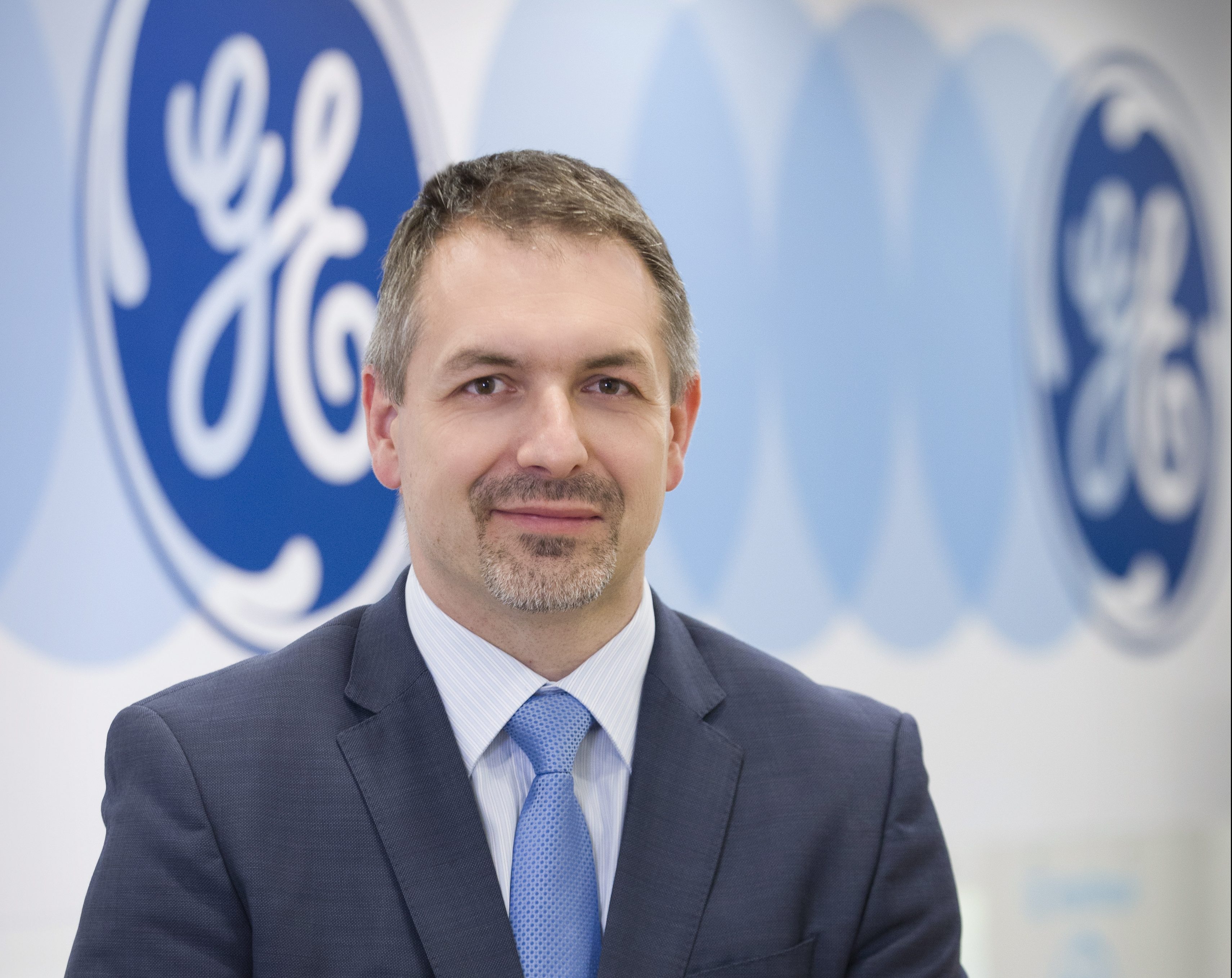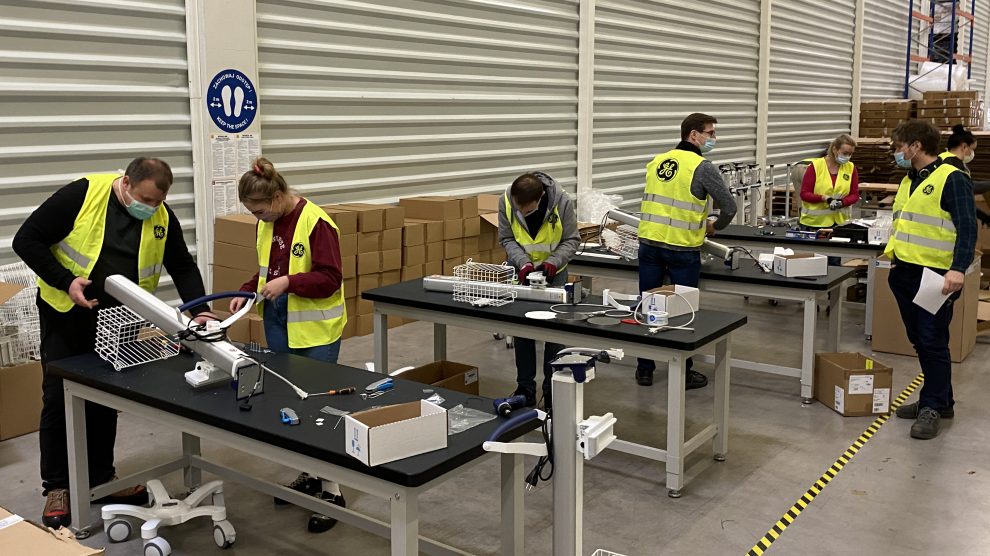GE Healthcare has a symbiotic relationship with emerging Europe: the region is a key market for the firm, while its research and development talent is crucial for future innovation in healthcare.
The Covid-19 pandemic has clearly shown that effective planning, introducing innovation and better diagnostic efficiency are critical factors for the health industry to move forward. Better cooperation between the public and private sectors could be key to finding the right path.
The pandemic has accelerated the pace of technological change: what would previously have taken the industry years to implement is now taking months. The healthcare industry is at the forefront of those changes.
One of the firms leading the way is GE Healthcare, for whom helping hospitals combat the coronavirus pandemic worldwide has been a key focus of its work since the beginning of 2020.
- The new ‘digital normal’ is task for both governments and the private sector
- Not using AI in healthcare will soon be malpractice
- To compete with the US in healthtech, emerging Europe and the UK must continue to collaborate
Its efforts have been particularly effective in Eastern Europe, but this has not been limited to the delivery of equipment: the region itself has made a major contribution to GE’s ongoing research and development efforts.
The firm’s general manager for Eastern Europe, Kostas Deligiannis, says that Covid-19 has proven particularly difficult for the region’s healthcare sector, forcing it to take concrete steps to respond to the new needs and priorities of its customers and patients, upping its research and development efforts and testing its capacity to deliver equipment.
It passed the test.
“Our goal was to keep the healthcare sector going and to enable hospitals to continue operating as efficiently as possible,” he says.
“At GE Healthcare we have been saying for years that the future of medicine is digitised and closely linked to artificial intelligence. During the pandemic, hospitals in the emerging Europe region have seen how beneficial new technologies can be, especially when facilities are overloaded and patients need a rapid diagnosis,” adds Deligiannis.

Boosting cooperation
Due to the increased demand for medical devices, necessary for the diagnosis and treatment of the disease caused by SARS-CoV-2, often because of a lack of preparedness in public healthcare systems, the company says that it noticed the growing interest in the ordering of specific types of equipment, such as ventilators, CTs and cardio monitors.
GE Healthcare was able to meet the demand by, among other things, changing the organisation of its production lines, as well as through cooperation – both at a global level and locally in emerging Europe.
In March, GE Healthcare and the Ford Motor Company announced plans to work together to scale up the production of ventilators — aimed to arm clinicians with vital medical equipment to treat patients with Covid-19, the illness caused by the new coronavirus.
Equipped with the essential functions required to treat Covid-19, the new system was built specifically to address the urgent needs of the pandemic.
Since the pandemic began, GE Healthcare has doubled its capacity of ventilator production and has plans to double it again by mid-year to address unprecedented demand.
GE has also increased global manufacturing capacity and output for critical medical equipment like CT scanners, ultrasound devices, mobile X-ray systems, patient monitors, and ventilators and has quadrupled the capacity of ventilator production to help address the ongoing demand.
Much of this equipment has been delivered to the emerging Europe market, and one of the most important deliveries has been of CTs-in-a-box, non-permanent facilities that allow for an increase in the number of CT examinations in a short time preserving safe and efficient movement of patients around the facility.
Nine of these have been installed in Poland, and two in Romania. Poland was also able to make use of a 1,300-strong shipment of GE Healthcare patient monitors which started arriving at hundreds of public hospitals throughout the country shortly before Christmas 2020. To make sure devices would be delivered as soon as possible, employees from different offices of the firm engaged in the process.
What is more, in January, GE Healthcare launched a new AI-based research project at its research and development centre in Hungary.
The project, to be implemented with a total investment of 3.35 billion forints (nearly 10 million euros) with support from the local government, will allow the implementation of new artificial intelligence-based solutions developed for global markets.
Lessons learnt
Moving forward, while the reaction of firms such as GE Healthcare has been impressive in its speed and scale, lessons must be learnt so that a future crisis can be dealt with in a better manner and the private sector may be the source of meaningful insights and best practices.
“The most fundamental gap that the current crisis has exposed is the absence of planning,” says Deligiannis. “Although this is evident in other regions too, in Eastern Europe healthcare has been growing and maturing in a completely non-organised way.
“Each government has its own priorities; various centres of influence have been promoting their interests, while on a national level, there is no strong and clear strategic plan.
“This crisis has clearly demonstrated that we have to focus our thinking and devise a 360-degree strategy that will allow for an integrated development of healthcare.”
Deligiannis is also adamant that more cooperation among public and private sectors will be needed.
“Another very important point highlighted by Covid-19 is the lack of mechanisms to integrate public and private healthcare sectors,” he says. “We have seen that in many countries, the critical ICU infrastructure in the public sector is insufficient. At the same time, there is a strong private sector, which is not included in the response plans – or at least was not included in the beginning. Covid-19 has been a call to accept that the private sector is there.”
“Nobody knows what the future holds, but I believe the hardest part is behind us, in the sense that the shock will not be a shock anymore,” he concludes. “Life will get back to a new normal soon, and from 2022 a heavy transformation of the healthcare sector will begin, especially in Eastern Europe.”
Unlike many news and information platforms, Emerging Europe is free to read, and always will be. There is no paywall here. We are independent, not affiliated with nor representing any political party or business organisation. We want the very best for emerging Europe, nothing more, nothing less. Your support will help us continue to spread the word about this amazing region.
You can contribute here. Thank you.



